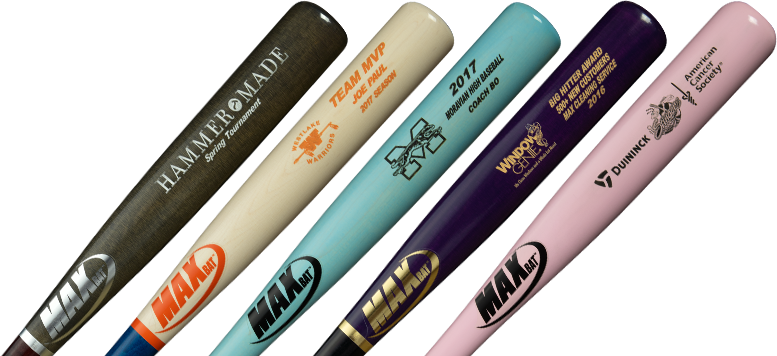 Often times we get asked about cupped vs. not-cupped, and many of those questions come from Major Leaguers. So, we’re here to give you some information as to the reasons why a wood bat is cupped and what are the benefits.
Often times we get asked about cupped vs. not-cupped, and many of those questions come from Major Leaguers. So, we’re here to give you some information as to the reasons why a wood bat is cupped and what are the benefits.
Back in the day, wood bats did not have cupped ends. It wasn’t an option, and nobody had given any thought to the practice. So when did it start?
Well during Spring Training of 2005, HOF catcher Johnny Bench came over to our display at Reds camp in Sarasota, FL. He asked lots of questions about MaxBat, and picked up practically every model that we had with us to show to players. It was then that he said, “You know, I was the first player to swing a cupped bat in the Majors back in the ‘70s”. It was a very interesting comment, as you can imagine. Here stands a Hall Of Famer, and we’re going to hear how cupping wood bats started.
Johnny described how he wanted his wood bat to feel a little more balanced, and after some thinking, he came up with the idea to hollow out the very end of the barrel to remove a little bit of the bat’s end weight.
So there you have it……Johnny Bench. The cupped wood bat innovator.
Nowadays, players can get a cupped wood bat no matter who they are. However, many of them still do not know the advantages a cupped bat gives them as a hitter.
The first advantage is that (like Johnny Bench said) a cupped bat will make the bat a tad more balanced. This can be a great benefit if you’re facing a pitcher who is throwing gas, and you’re in the dog-days of Summer and you just don’t feel you’ve got the swing speed to catch up to the pitch. Most players understand this, and it’s for that reason that most players will request a cupped end.
However the most beneficial reason to order your wood bat cupped, is that as a wood bat company and wood bat manufacturer, we can use a higher density piece of wood to make your bat if we know ahead of time that we are going to cup the end during one of the final stages of production.
Follow me here…..the #1 thing a ballplayer wants from a wood bat is to get the hardest piece of wood they can. Harder wood equals stronger wood. Stronger wood equals more pop and more durability. When we cup a bat, we know that we can remove up to 7/10ths of an ounce off the overall weight of a bat. So if we know that we are going to remove that weight at the end of the process, one of our production members can first select a wood bat billet that is on the heavy side (heavier wood equals higher density wood). If we’re attempting to make the same exact wood bat model, but without a cup, our production team has to use a wood bat billet that is a shade lighter in weight (light wood equals lower density wood) due to the fact that we are not removing any weight by cupping. Make sense?
Some players think that the act of cupping a wood bat somehow makes it weaker….or that the bat will break easier if it’s cupped. Well, a cupped wood bat is made from higher density wood, so it should be stronger and more durable, thus making it last longer.
One concern that players do have in regards to cupped ends is the chance of hitting a baseball off the very end of the bat and the wood chipping away. MaxBat solved this problem years ago when we were first getting the business off the ground. If you’ll notice, our cup design features a thicker “wall” on the end, which gives it more strength to withstand those dreaded end-shots you might encounter when chasing an off-speed pitch.
So in summary, a cupped end adds balance to your wood bat AND allows us to use a higher density (stronger/harder) wood bat billet to create your custom baseball bat.
View Post





